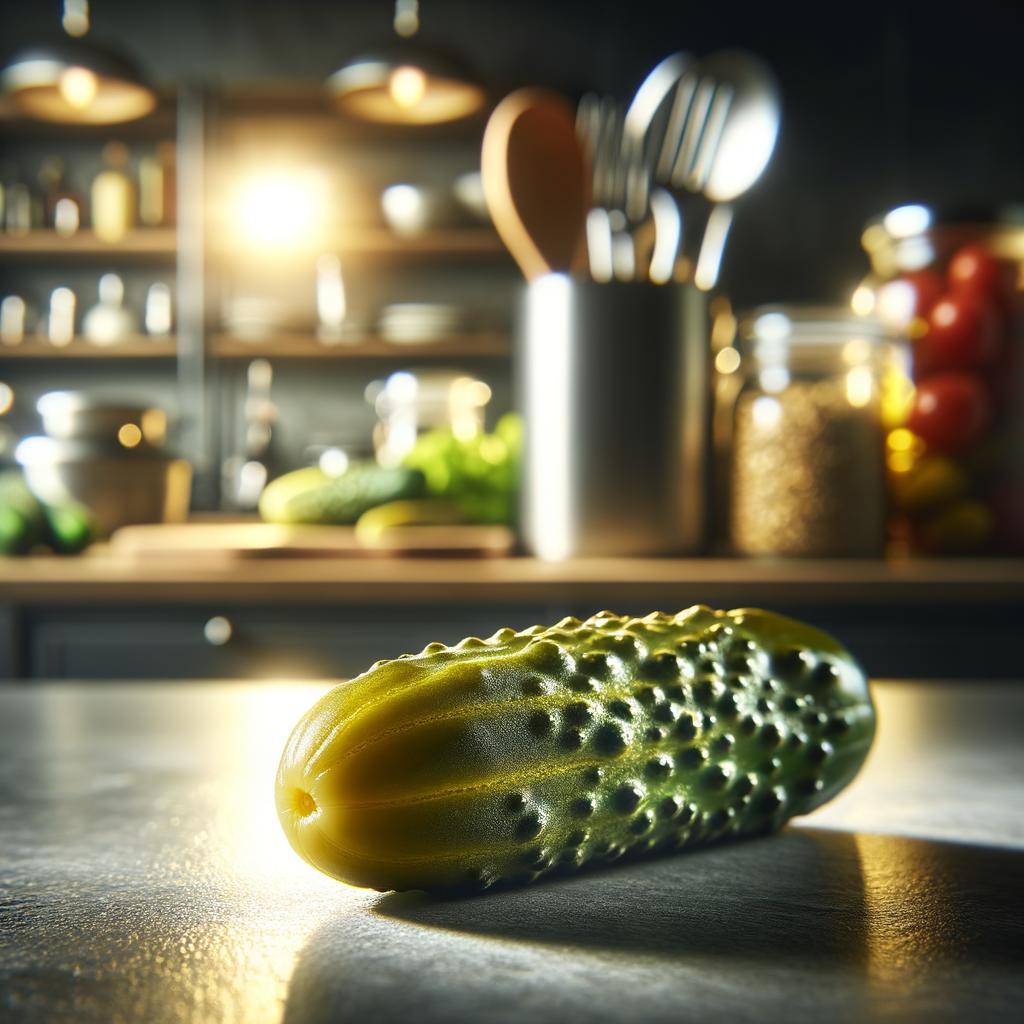Dill Pickle

Description
The dill pickle, a tangy delight for many, is a cucumber that has been pickled in a brine, vinegar, or other solution and left to ferment for a period of time. Its appearance is typically a deep green hue, speckled with tiny seeds and often accompanied by sprigs of fresh dill weed. The texture of a dill pickle is satisfyingly crisp and crunchy, providing a pleasing contrast to its juicy interior. Its flavor profile is a harmonious blend of sour, salty, and a hint of sweetness, underlined by the distinctive aroma of dill. What sets the dill pickle apart from its pickle brethren is the addition of dill in the pickling process, which gives it its unique and bold flavor.
Primary Uses
Dill pickles are a versatile ingredient, often served as a side dish or used as a condiment in many cuisines worldwide. They are a staple in American cuisine, famously paired with sandwiches, burgers, and hot dogs. In Eastern European cuisine, they are enjoyed in soups and stews, while in the Middle East, they are often diced and used in salads. Beyond its culinary uses, dill pickles also have a cultural significance. For instance, in the United States, pickle ornaments are hidden in Christmas trees, a tradition with German roots.
History
The history of dill pickles is as rich and varied as its flavor. The practice of pickling cucumbers originated in ancient Mesopotamia around 2030 B.C. However, the distinctive dill flavoring can be traced back to Poland in the 14th century, where it became a popular method of food preservation. Over time, the popularity of dill pickles spread across continents, and they became a beloved snack in the United States by the 19th century. There's an interesting folklore associated with dill pickles - it's believed that Cleopatra attributed her good looks to a hearty diet of pickles!
Nutritional Information
Dill pickles are low in calories and a good source of vitamin K. They also contain a moderate amount of vitamin A and dietary fiber. The pickling process also encourages the growth of beneficial bacteria, making dill pickles a good source of probiotics. However, they are high in sodium, so they should be consumed in moderation by those watching their salt intake. Compared to sweet pickles, dill pickles have fewer sugars and may be a better choice for those aiming for a lower-sugar diet. As always, the key is balance and moderation in consumption.

